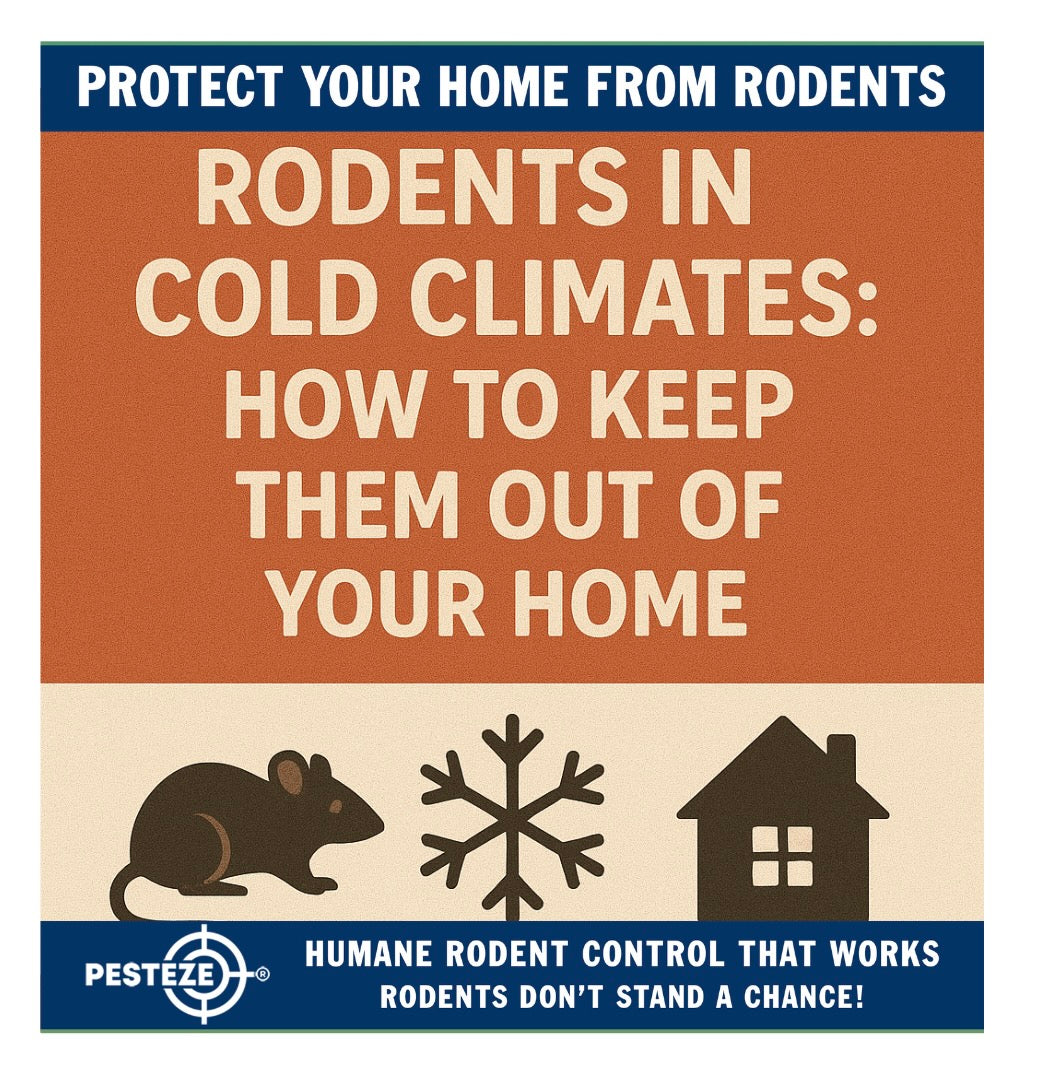RODENTS IN COLD CLIMATES: HOW TO KEEP THEM OUT OF YOUR HOME

RODENTS IN COLD CLIMATES: HOW TO KEEP THEM OUT OF YOUR HOME
SUMMARY
When temperatures drop, rodents seek warmth and shelter—often inside homes. Cold climates create the perfect conditions for mice and rats to invade basements, attics, and walls. Learn how to rodent-proof your home and stay pest-free through the winter.
FEATURES
-
Winter Invasions: Rodents move indoors to escape freezing temperatures.
-
Entry Points: Cracks, vents, and gaps let rodents access your home.
-
Insulation Damage: Nesting rodents destroy insulation and wiring.
-
Food Foraging: Rodents target pantry items and pet food.
-
Nocturnal Activity: Most winter rodent movement happens at night.
-
Signs of Infestation: Droppings, gnaw marks, and scratching sounds reveal their presence.
DESCRIPTION
As winter sets in, rodents like mice and rats look for warm, safe places to ride out the cold. Unfortunately, that often means moving into people’s homes. Cold climates present unique challenges when it comes to rodent control, but with the right precautions, you can keep them out.
Winter invasions typically begin in late fall as rodents seek refuge from frost and snow. They are small enough to squeeze through gaps as narrow as a quarter of an inch. Homes provide not only warmth but also access to food and nesting material, making them highly attractive to pests.
Start by inspecting your home’s entry points. Gaps around windows, doors, utility lines, vents, and the foundation are prime access points. Use weather stripping, steel wool, and caulk to seal these gaps. Door sweeps and mesh screens over vents can also prevent entry without blocking airflow.
Once inside, rodents can cause serious insulation damage. They nest in attics and walls, shredding insulation and chewing on electrical wires, which poses a fire hazard. A thorough attic inspection in the fall can help identify early signs and prevent costly repairs.
Rodents also enter homes in search of food. Secure your pantry by storing food in sealed containers. Clean crumbs and spills quickly, and don’t leave pet food out overnight. Taking away food access makes your home far less appealing.
Since rodents are nocturnal, most activity happens at night. You may hear scratching in the walls, gnawing sounds, or detect a musky smell. These are clear signs of infestation, along with droppings and damaged packaging.
Being proactive before winter hits is the best defense. Regular inspections, sealing potential entry points, and eliminating food sources can go a long way in keeping rodents out. If an infestation is already underway, traps and professional pest control may be necessary to resolve the issue quickly and humanely.
- Nikita Gulrajani


Comments 0